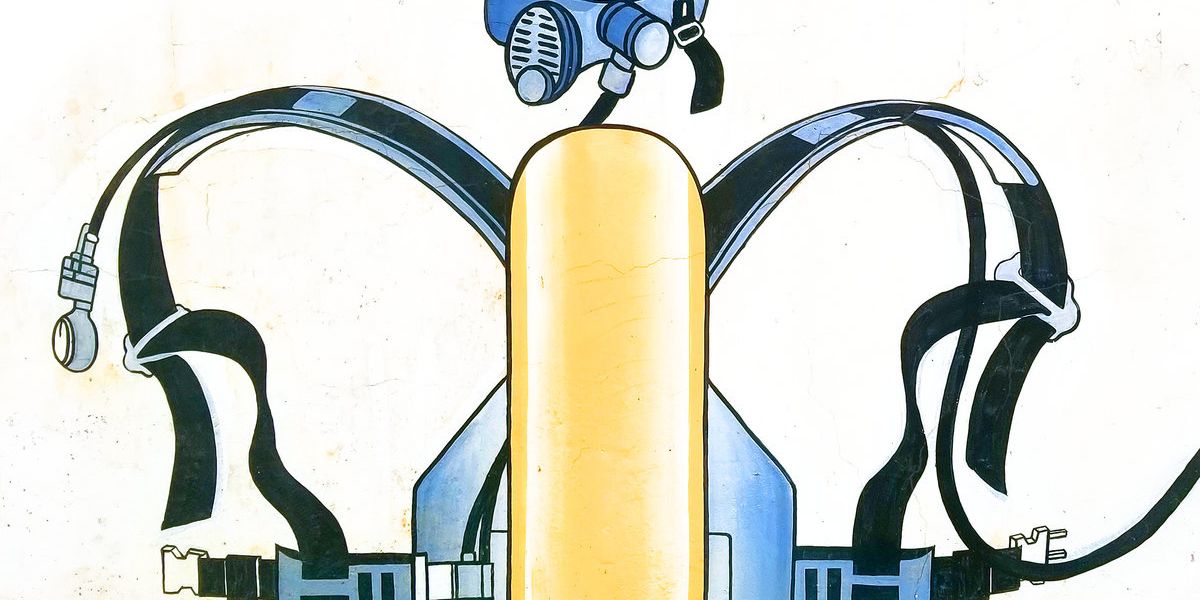The first beats of “Ngavele Ngagaxela” are crisp and bare; the vocals atop them nimble and bold. Such straightforward musical bones are the foundation of Durban-based Phelimuncasi’s signature brand of gqom, a plugged-in musical genre with minimalist aesthetics and high adrenaline. A new Nyege Nyege Tapes compilation, 2013-2019, brings nine of the group’s most exciting tracks together, placing them at the intersection of non-stop dance rhythms and trenchant social commentary.
Whether or not you speak the same language as the three vocalists — Malathon and twins Makan Nana and Khera — this activist bent is clear. In addition to their continuing work performing at political events for the African National Congress and South African left-wing party EFF, the band’s music consistently evokes not only house and kwaito, but toyi-toyi, both a form of chant and choreography and a method of protest and intimidation best known for its practice in anti-apartheid movements. Call-and-response verses fire back and forth over low synths, all in the hands of producers Menzi, DJ MP3, and DJ Scoturn, all pioneers of gqom as a style.
What comes forth from these creative minds and hands is hypnotic, even more entrancing for each cut’s internal repetition. Such space between beats leaves room for darkness, for echoes, for excitement — all of which Phelimuncasi builds magnificently. The barely dissonant vocal layers of “Umahlalela” amid eerie metallic melodies signal what is to come, while the rapid-fire chattering and ululating on “Private Party” usher it in once and for all: a tidal wave of eerie aural power.
Tracks and tracks of skeletal techno follow. “South Beach eWHEE” features 004 Da Artist’s forthright vocals punctuated by cymbal clashes. “I Roof” is a piece in stereo, percussive echoes, and subtle klaxons moving back and forth to establish a distinct vastness. “Sesi Gora” rolls thin, marching beats tightly with vocal parts. The album’s atmospheric peak is undoubtedly “GQOM Venus Cemetrary”, a slow-building piece that opens with vaporous aplomb and slowly fills with static and low, breathy voices, all of which build to a stark, metallic climax of rhythm. Immediately following is “Umgido”, a piece that unravels into overlapping vocal parts. The compilation ends on a high note: “Ungabom Themba Umunutu”, an energetic finale with a strong lower end that adds extra warmth to dizzying vocals.
If one of gqom’s defining features is a commitment to raw, unencumbered energy, then Phelimuncasi is surely an exemplar of the form. With this brief anthology, Nyege Nyege Tapes puts on display the group’s unstoppable energy. To listen to it from start to finish is an immersive experience, one that takes you very specifically through Durban dance floors, the likes of which are found nowhere else in the world. It is, for newcomers to the scene, nothing less than revelatory: the tension in the beats, the release unleashed in the vocals, the spaces left for bodies to make their own sounds as they move among and against one another. Phelimuncasi are a band to know, and 2013-2019 a wondrous first step.


